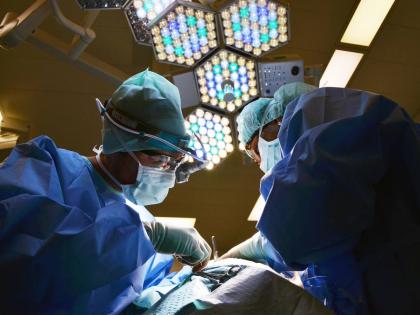Indian Doctors Solve Mystery of Premature Births With Help of AI
By Lokmat English Desk | Updated: July 27, 2024 14:22 IST2024-07-27T14:21:02+5:302024-07-27T14:22:16+5:30
An AI-based genetic study by local scientists could help reduce preterm births, a major cause of infant deaths and ...

Indian Doctors Solve Mystery of Premature Births With Help of AI
An AI-based genetic study by local scientists could help reduce preterm births, a major cause of infant deaths and disabilities. Preterm birth, or early birth, affects the development of organs like the brain, heart, lungs, and liver. Premature babies are more likely than full-term babies to have breathing, warming, or feeding issues and are at higher risk of developmental delays.
For the first time in India, a study has found three microorganisms, three genes, and three bacterial pathways that can cause infection in a pregnant woman's birth canal, increasing the risk of preterm birth.
The study is a joint effort by the Parel-based National Institute for Research in Reproductive and Child Health (NIRRCH), New Delhi's Indian Council of Medical Research division of biomedical informatics, and Noida's Amity Institute of Biotechnology.
Also Read | Heatwaves Linked to Rise in Premature Births, Study Finds.
In India, one in six babies is born prematurely, often for unknown reasons. Previous studies suggested that vaginal infections might cause preterm births, but they lacked clarity on the specific organisms responsible. "Our AI-based analysis identified microorganisms and chemicals that might cause premature births," said Dr. Abhishek Sengupta from Amity Institute of Biotechnology, the main author of the study. Dr. Deepak Modi from Parel's NIRRCH is another author of the study, published in the latest issue of the 'American Journal of Reproductive Immunology'.
The team analyzed global data from 3,757 women of various ethnicities to identify the most common bacteria responsible for vaginal infections. Of these, 966 samples were related to preterm births, while the remaining 2,791 were from mothers who had full-term deliveries.
Open in app